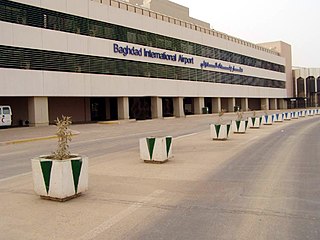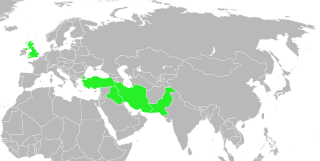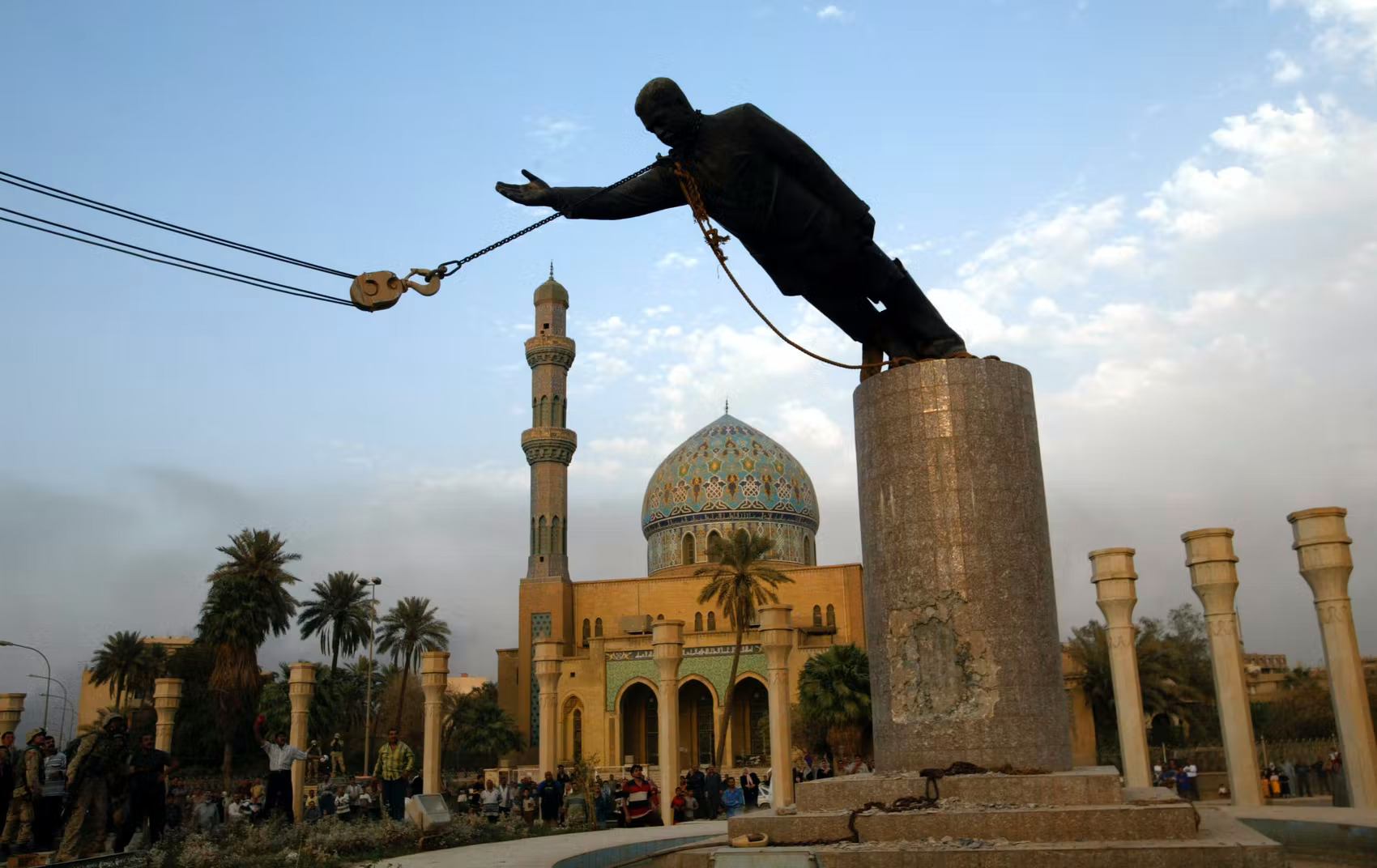Related Research Articles

Baghdad is the capital of Iraq and the second-largest city in the Arab world after Cairo. It is located on the Tigris river. In 762 AD, Baghdad was chosen as the capital of the Abbasid Caliphate, and became its most notable major development project. Within a short time, the city evolved into a significant cultural, commercial, and intellectual center of the Muslim world. This, in addition to housing several key academic institutions, including the House of Wisdom, as well as a multiethnic and multi-religious environment, garnered it a worldwide reputation as the "Center of Learning".

The Abbasid Caliphate or Abbasid Empire was the third caliphate to succeed the Islamic prophet Muhammad. It was founded by a dynasty descended from Muhammad's uncle, Abbas ibn Abd al-Muttalib, from whom the dynasty takes its name. They ruled as caliphs for most of the caliphate from their capital in Baghdad in modern-day Iraq, after having overthrown the Umayyad Caliphate in the Abbasid Revolution of 750 CE (132 AH). The Abbasid Revolution had its origins and first successes in the easterly region of Khorasan, far from the bases of Umayyad power in Syria and Iraq. The Abbasid Caliphate first centered its government in Kufa, modern-day Iraq, but in 762 the caliph Al-Mansur founded the city of Baghdad, near the ancient Babylonian capital city of Babylon and Persian city of Ctesiphon. Baghdad became the center of science, culture, and invention in what became known as the Golden Age of Islam. This, in addition to housing several key academic institutions, including the House of Wisdom, as well as a multiethnic and multi-religious environment, garnered it an international reputation as the "Centre of Learning".

Baghdad International Airport, previously Saddam International Airport from 1982 to 2003, is Iraq's largest international airport, located in a suburb about 16 km (9.9 mi) west of downtown Baghdad in the Baghdad Governorate. It is the home base for Iraq's national airline, Iraqi Airways.

The Central Treaty Organization (CENTO), formerly known as the Middle East Treaty Organization (METO) and also known as the Baghdad Pact, was a military alliance of the Cold War. It was formed on 24 February, 1955 by Iran, Iraq, Pakistan, Turkey, and the United Kingdom. The alliance was dissolved on 16 March 1979.

Baghdad Governorate, also known as the Baghdad Province, is the capital governorate of Iraq. It includes the capital Baghdad as well as the surrounding metropolitan area. The governorate is one of two small provinces of all 19 in Iraq into which the country divides entirely, yet by a margin of almost three-to-one, the most populous.

The Battle of Baghdad, also known as the Fall of Baghdad, was a military engagement that took place in Baghdad in early April 2003, as part of the invasion of Iraq.

Kadhimiya or Kadhimayn is a northern neighbourhood of the city of Baghdad, Iraq. It is about 5 kilometres (3.1 mi) from the city's center, on the west bank of the Tigris. 'Kadhimiya' is also the name of one of nine administrative districts in Baghdad. As the place of al-Kadhimiya Mosque, even before its inception into the urban area of Baghdad, it is regarded as a holy city by Twelver Shia muslims.

The history of the Jews in Iraq is documented from the time of the Babylonian captivity c. 586 BCE. Iraqi Jews constitute one of the world's oldest and most historically significant Jewish communities.

The fall of Baghdad occurred during the Mesopotamia Campaign, fought between the forces of the British Empire and the Ottoman Empire in the First World War.

The siege of Baghdad took place in early 1258 at Baghdad, the historic capital of the Abbasid Caliphate. After a series of provocations from the city's ruler, Caliph al-Musta'sim, a large army under the Mongol prince Hulegu attacked the city. Within a few weeks, the city fell and was sacked by the Mongol army—al-Musta'sim was killed alongside hundreds of thousands of his subjects. The city's fall has traditionally been seen as marking the end of the Islamic Golden Age; in reality, its repercussions are uncertain.

Abd al-Qadir al-Jilani was a Hanbali scholar, preacher, and Sufi leader who was the eponym of the Qadiriyya, one of the oldest Sufi orders.
The 27 October 2003 Baghdad bombings were a series of suicide car bombings targeting the Red Cross headquarters and four Iraqi police stations in Baghdad. The attacks killed 34 people and injured another 224.
The Mustansiriya University bombings was a series of bombing attacks at students and teachers at the largely Shiite Mustansiriya University in Baghdad, Iraq, on January 16, 2007. Some 70 people were killed and 169 were wounded.
The 2 November 2010 Baghdad attacks were a series of bomb attacks in Baghdad, Iraq that killed more than 110 people.
The 2015 Baghdad market truck bombing was a truck bomb attack on 13 August 2015, targeting a Baghdad food market in Sadr City, a predominantly Shi'ite neighborhood.
The February 2016 Baghdad bombings occurred on 28 February 2016. At least 70 people were killed and 60 wounded in Sadr City, a southern suburb of Baghdad, as two bombs went off at a crowded market. The explosions ripped through a market selling mobile phones in the mainly Shiite Muslim district. The assailants were suicide bombers riding motorcycles through the crowd.
On 17 May 2016, a series of bombings by the terrorist group Islamic State of Iraq and the Levant hit the Iraqi capital city of Baghdad. At least 101 people were killed and 194 injured.

On 3 July 2016, ISIL militants carried out coordinated bomb attacks in Baghdad that killed 340 civilians and injured hundreds more. A few minutes after midnight local time, a suicide truck-bomb targeted the mainly Shia district of Karrada, busy with late night shoppers for Ramadan. A second roadside bomb was detonated in the suburb of Sha'ab, killing at least five.

The January2021 Baghdad bombings were a pair of terrorist attacks that occurred on 21 January 2021, carried out by two suicide bombers at an open-air market in central Baghdad, Iraq. They killed at least 32 people and injured another 110. This was the Iraqi capital’s first terrorist attack since 2019.